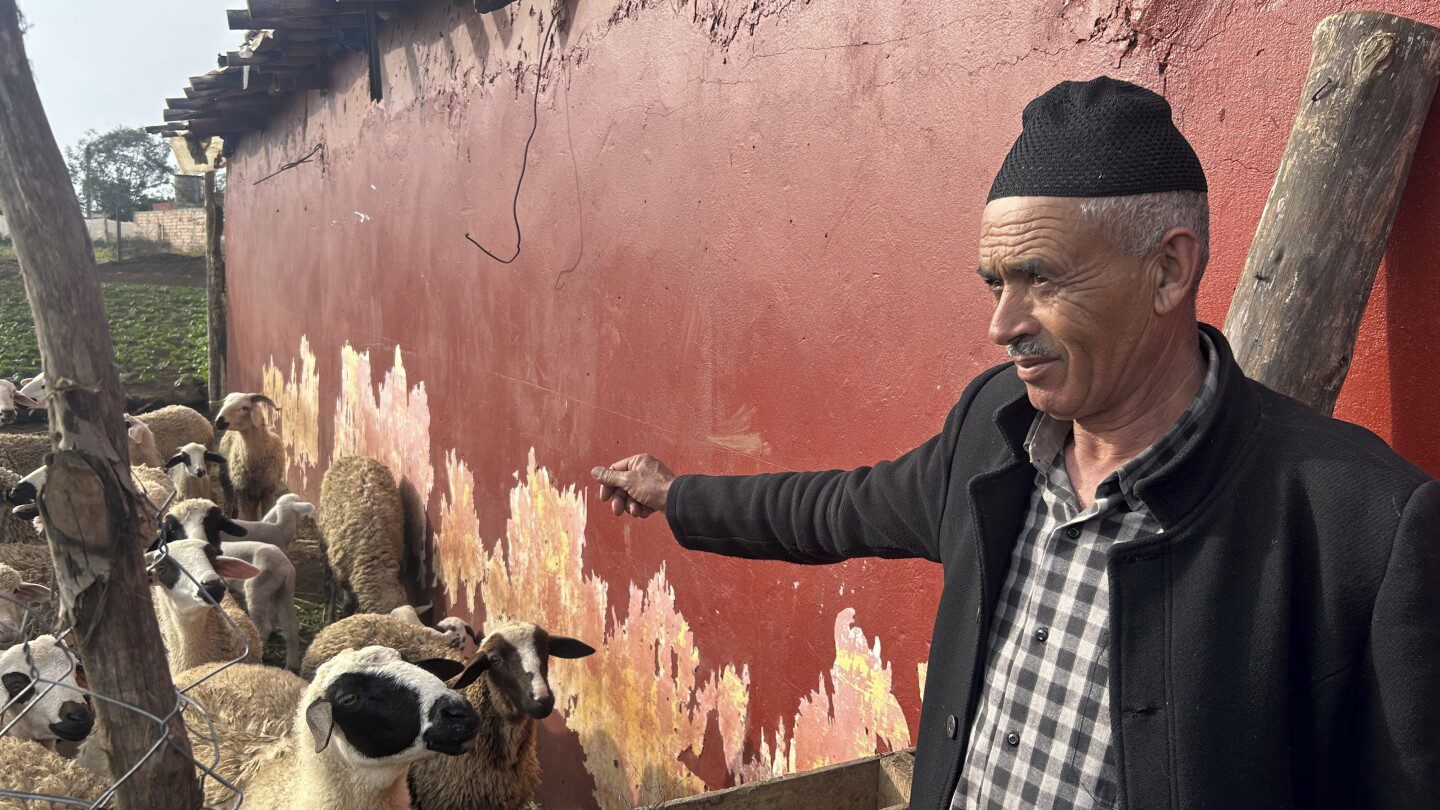
OULAD SLAMA, Morocco (AP) — When Larbi El Ghazouani feeds his 130 sheep with alfalfa and straw twice daily, the animals eagerly rush to their troughs. The 55-year-old farmer had anticipated selling most of his flock to Moroccans preparing for the Eid Al-Adha holiday in early June. However, his plans are now in jeopardy, with losses to his investment expected to reach about 50%.
This significant shift comes as King Mohammed VI recently called on Moroccans to reconsider purchasing sheep for sacrifice during the upcoming holiday due to soaring inflation and the adverse effects of climate change. A severe seven-year drought has dramatically reduced the nation’s livestock populations, driving sheep prices beyond the budget of many working-class families.
“Sacrificing sheep under these challenging conditions will negatively impact many of our citizens, especially those with limited means,” stated the king, who also serves as Morocco’s highest religious authority, in a letter broadcast on state television, Al Aoula.
The drought has led several of El Ghazouani’s neighbors to cease their livestock breeding efforts, and while he understands the reasoning behind the king’s request, he remains committed to increasing his flock for next year’s festivities. Nevertheless, for breeders like him, the cancellation of Eid celebrations represents a significant setback.
El Ghazouani spends approximately 1,500 Moroccan dirhams ($150) annually to feed each sheep, relying on a diet of straw, alfalfa, and fava beans — a staggering 50% increase compared to three years ago. Now, he and fellow breeders find themselves in a waiting game, needing to buy feed until they can sell the animals.
“The situation now is worlds apart from the years before the drought,” he remarked while tending to his sheep on a farm near Kenitra. “I’ve invested money in fodder and put in a great deal of effort with these animals.”
This year, Eid al-Adha, an important annual celebration where Muslims honor a Quranic passage about the prophet Ibrahim’s willingness to sacrifice his son as an act of devotion to God, falls in early June. During this holiday, families across regions from Senegal to Indonesia traditionally partake in the custom of sacrificing livestock. The significance of this practice is such that many families often resort to loans to afford sheep.
Owing to soaring prices, a survey conducted by the Moroccan NGO Moroccan Center for Citizenship revealed that 55% of families faced difficulties accommodating the expenses associated with purchasing sheep and necessary preparation equipment. Alarmingly, over 7% of respondents admitted to taking out loans or borrowing money to secure their sacrificial sheep.
The steep rise in sheep costs can be attributed to diminished pastures, which restrict grazing space and inflate feed prices for farmers and herders. Recent statements from Morocco’s agricultural minister highlighted that this season’s rainfall is currently 53% lower than the average of the past three decades, with sheep and cattle herds having contracted by 38% since the last livestock census in 2016.
The price of preferred local sheep can often surpass the monthly earnings of families in Morocco, where the minimum wage is still set at 3,000 Moroccan dirhams ($302). In response to the rising costs, the country has been subsidizing and importing livestock, including sheep from Romania, Spain, and Australia, with plans to bring in 100,000 sheep this year. To stabilize prices, Morocco has also lifted import duties and VAT on livestock and red meat this year.
For the first time in nearly three decades, Moroccans have been asked to skip traditional holiday feasting, a decision reflecting ongoing struggles with food prices even as the country modernizes from its agrarian roots to a mixed economy boasting some of the most advanced infrastructure in the Middle East and Africa. King Hassan II had issued similar appeals during his reign in response to wartime crises, droughts, and IMF mandates requiring the country to eliminate food subsidies.









